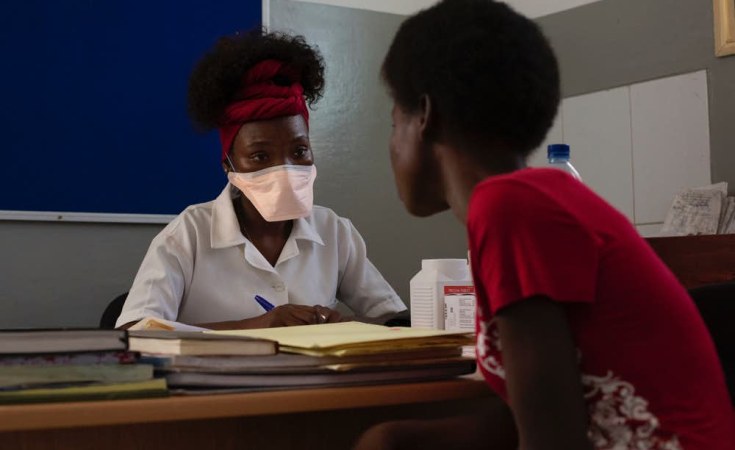
By Jerry Chifamba
Harare — Humans and wild animals are facing new challenges for survival because of the climate crisis – how more frequent and intense drought, storms, heat waves, rising sea levels, melting glaciers and warming oceans can directly harm animals, destroy the places they live, and wreak havoc on people’s livelihoods and communities.
But what about your health?
The Centers for Disease Control and Prevention (CDC) already concluded that the climate emergency leads to death and illness from increasingly frequent extreme weather events. Your life is more likely to be disrupted or claimed by respiratory and cardiovascular diseases, and infectious diseases, heatwaves and storms, the slowdown of food distribution and mental illness.
From clean air, safe drinking water, enough food and secure shelter, the climate crisis affects the social and environmental determinants of health, and between 2030 and 2050, is expected to lead to the deaths of a quarter of a million people per year, from malnutrition, malaria, diarrhoea and heat stress, according to the WHO.
And, as if the price of the climate crisis is not high enough, the direct damage costs to health is estimated by the WHO to be “between U.S.$2 to $4 billion per year by 2030 with areas that have weak health infrastructure – mostly in developing countries – the least able to cope without assistance to prepare and respond”.
In Africa, climate-related health emergencies are on the rise, accounting for more than half of public health events recorded in the region over the past two decades, an analysis by WHO shows. The analysis found that of the public health events recorded in the African region between 2001 and 2021, 56% were climate-related and the climate-linked emergencies are increasing, with 25% more climate-related events recorded between 2011 and 2021 compared with the previous decade.
Floods, stagnant water and a lack of clean drinking water and sanitation leads to waterborne diseases such diarrhoea, cholera, dysentery, typhoid and polio. Contaminated drinking water is estimated to cause more than half a million deaths from diarrhoea every year.
MSF, supporting displaced and vulnerable individuals in Somalia, says: “The most significant impact of climate change can be seen in malnutrition among children. If climate change continues as projected, diminished food production and reduced nutritional quality of some cereal crops could increase the risk of undernutrition – with infants likely to be the worst affected.”
A report by the United Nations Environment Programme (UNEP) looked at how those living in urban areas might be impacted by rising temperatures. Cities will get even hotter as a result of the heat islands produced when buildings and roads absorb the heat. And it becomes obvious that the healthcare sector on the continent is facing a significant problem, when you take into account that Africa’s cities are growing at an unbelievable rate, and that many people who move to urban centres wind up living in informal regions with little to no infrastructure, as a previous AllAfrica story shows.
According to the UNEP research, the hazard of excessive heat is growing for cities around the world, but it is a greater threat for poorer countries because they are unable to cool their houses. Children, the elderly, and those with co-morbidities, particularly those with cardiovascular issues – will be the groups most affected. The WHO echoes this. “Countries’ inability to protect health from climate change is most harmful for their most disadvantaged groups, including ethnic minorities, poor communities, migrants and displaced people, older people and many women and children.”
According to a recent WHO policy brief, governments should incorporate mental health support in their response to the climate crisis because it also poses substantial dangers to mental health and well-being. The findings are consistent with a report from the Intergovernmental Panel on Climate Change (IPCC). The IPCC reports that the threat to mental health and psychosocial wellness, ranging from emotional distress to anxiety, depression, grief, and self harm, is increasing.
Then there’s infectious diseases like tuberculosis (TB) which continues to be a scourge on the continent. Strides in the fight against tuberculosis have been made, but a number of obstacles, such as the climate emergency, are stifling the efforts to end this preventable and curable disease. At the current rate, the global targets to eliminate the disease by 2030 look increasingly elusive.
Dr Maria Beumont, the Chief Medical Officer, at the TB Alliance says mass migration and food insecurity caused by catastrophic weather events are drivers of TB disease and its spread.
“As climate change exacerbates these problems, the TB pandemic will become that much more of a threat. As a climate sensitive disease, TB is directly and indirectly impacted by a changing climate: directly by requiring migration of populations and disrupting access to health care, impacting socio-economic conditions and food security with associated malnutrition, and increasing poverty and overcrowded living conditions. Indirectly because of its related effects on other diseases equally impacted that are risk factors for tuberculosis like diabetes or HIV. Consequently, the climate crisis not only contributes to the spread of TB, it also lowers favorable outcomes for patients,” says Beumont.
Speaking on the challenges in people completing their treatment, Beumont said TB treatments take too long to cure, are too complicated to administer, and can be toxic.
“Treatments are too long and can have difficult side effects. We’re working to shorten the treatment of TB from a typical duration of 6 months to a matter of weeks. We believe the science is sound, but we simply don’t yet have the resources to achieve this goal soon.”
The TB Alliance, a not-for-profit partnership to discover and develop new, faster-acting and affordable TB medication, has however introduced a short, six-month therapy for drug-resistant TB that can reduce transmission and cure more people in less time with manageable side effects.
“This treatment was first proven in South Africa, a country that has taken on a leadership role in innovation and access, with a stated commitment to scaling up access to this new therapy on a national basis by the end of the year,” says Beumont.
The goal is to make TB treatment shorter, simpler and highly effective so it’s cured in weeks, not months or years. “We cannot afford to rest …. We can get there if countries choose to make the necessary investments to bring about a world where TB is easy to cure. Health systems need to move quickly to adapt to innovations. Shorter therapies can save lives and livelihoods by helping people get back to their jobs and families on an expedited basis,” she says.
The current level of financing and investment in TB control in Africa is too low and puts the worldwide goal of eradicating the illness by 2030 in jeopardy.
WHO Regional Director for Africa, Dr Matshidiso Moeti, on World TB Day, called governments to step forward with additional domestic financial support.”With 36% of all TB deaths occurring in Africa, failure to invest in the TB response is set to take a formidable toll on African countries. Increased investment can be a game-changer, and alleviate the preventable suffering and death of millions of our people,” Moeti says.
Climate change will expose up to 118 million extremely poor African people to drought, floods and extreme heat by 2030 if it is not addressed urgently – by cutting greenhouse gas emissions drastically, phasing out fossil fuels and moving to renewable energy. That fight is critical to prevent and control the transmission of TB and other infectious diseases.










